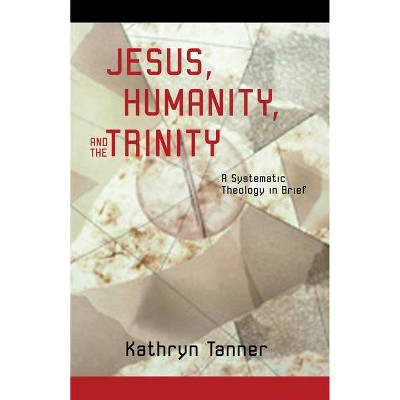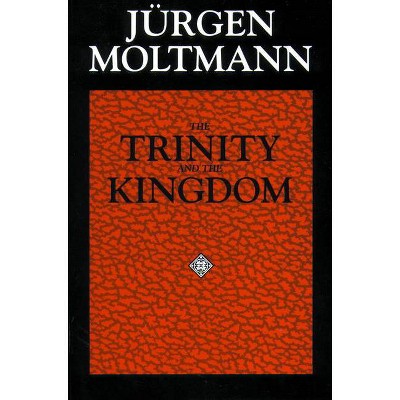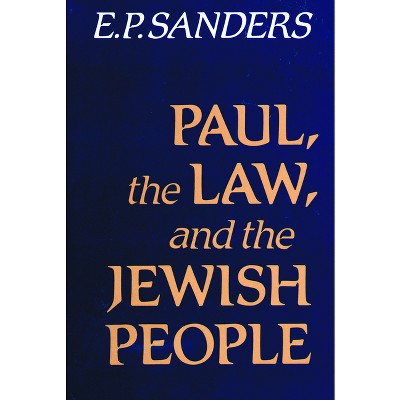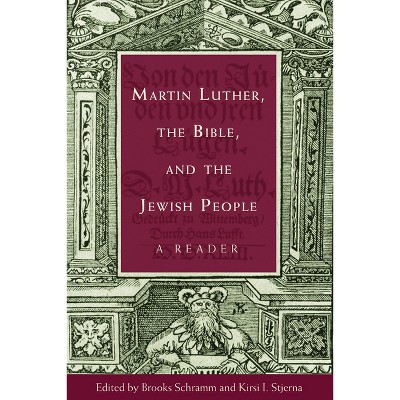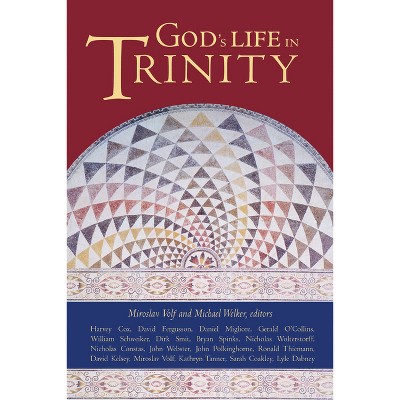About this item
Highlights
- The Christian affirmation of a triune God has always perplexed and confounded Jews.
- Author(s): Alan Brill
- 232 Pages
- Religion + Beliefs, Christian Theology
Description
About the Book
In A Jewish Trinity Alan Brill offers a Jewish understanding of six topics often discussed in contemporary Christian theology: Trinity, original sin, incarnation, salvation, messianism, and covenant. Brill shows that contemporary Christian theology allows for greater commonality while remaining aware of differences.Book Synopsis
The Christian affirmation of a triune God has always perplexed and confounded Jews. Can Jews get beyond understanding the Trinity as inherently tri-theistic A Jewish Trinity serves as an entrance into a range of issues in Jewish-Christian theological difference, presenting a Jewish understanding of six topics in contemporary Christian theology: Trinity, original sin, incarnation, salvation, messianism, and covenant.
In A Jewish Trinity Alan Brill seeks a Jewish appreciation for the core theological differences between the two religions. The book is informed by recent historical studies of the early Jewish-Christian division, showing greater commonality in theological ideas. The book, however, concentrates on contemporary Christian theology--especially the constructive theology of Karl Rahner and Jürgen Moltmann--to demonstrate that contemporary Christian theological formulations possess greater affinity to Jewish conceptions than did prior Christian theology, while also still providing religious difference.
This work of comparative theology is a crucial next step in Jewish-Christian encounter for our historically informed, post-polemical age. Brill shows that Jews and Christians can engage in comparative discourse on theological issues with full clarity and understanding. The book seeks to change the field of Jewish-Christian encounter, going beyond reconciliation toward a richer and deeper theological discussion of similarity and difference.
Review Quotes
The work of theological reflection in Jewish-Christian dialogue too often has been lopsided, with Christian theological perspectives dominating. In this book, Alan Brill offers a Jewish counterweight, indicating new pathways for Jewish comparative theological reflections on core Christian doctrines. Such work is needed in order to propel the dialogue further. --Daniel Joslyn-Siemiatkoski, Kraft Family Professor, Center for Christian-Jewish Learning at Boston College, and author of The More Torah, the More Life: A Christian Commentary on Mishnah Avot
This book brims with generosity to Brill's Christian interlocutors, grounded in his lifelong serious study of Christian texts and theologies and in his mastery of Jewish traditions. That such a book exists is a cause for rejoicing. Too often, Jewish and Christian thinkers avoid talking together in a constructively comparative way, due to a paralyzing fear of getting things wrong or being criticized by the other. This book is a treasure-trove for future conversation, undertaken in a spirit of respect while avoiding a false syncretism. --Matthew Levering, James N. Jr. and Mary D. Perry Chair of Theology, Mundelein Seminary, and author of Engaging the Doctrine of Israel
Alan Brill's A Jewish Trinity is a wise and instructive depiction of central Christian doctrines as they appear to his Jewish eyes. Christian theologians have much to learn from it. --Paul J. Griffiths, author of Israel: A Christian Grammar
Alan Brill is a master of Jewish and Christian sources, and this is a breakthrough book. He examines key Christian doctrines showing commonality, difference, and intriguing unanswered questions arising from his comparative exercise. Brill keeps the conversation open and avoids any facile assimilation. --Gavin D'Costa, professor of interreligious theology, Pontifical University of St Thomas Aquinas, Rome, and emeritus professor of Catholic theology, University of Bristol
Alan Brill's direct engagement of Christian systematic theology helps advance the profoundly important but neglected area of theological study in the dialogue called for by the Second Vatican Council. The book significantly deepens the theological dimension of contemporary Christian-Jewish dialogue. --Matthew Tapie, associate professor of theology, and director of the Center for Catholic-Jewish Studies, Saint Leo University







